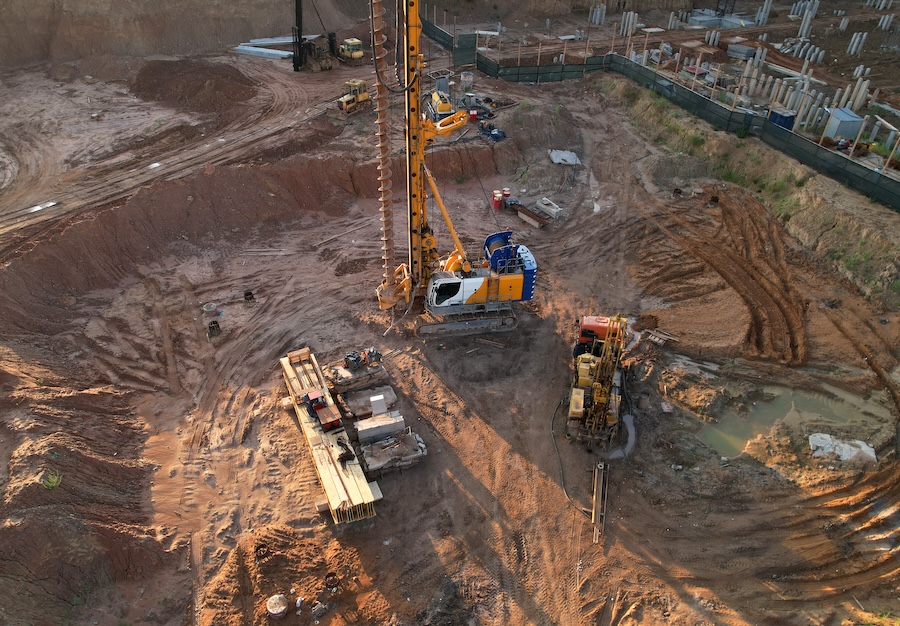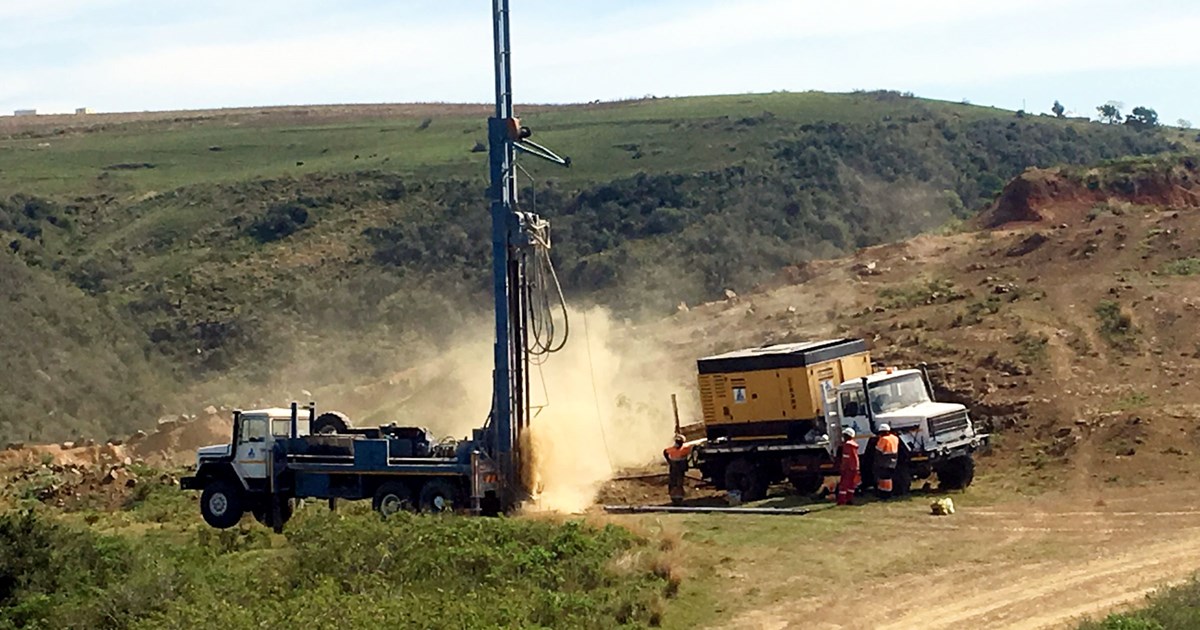Top Reasons to Employ a Geotechnical Specialist for Your Construction Tasks
Top Reasons to Employ a Geotechnical Specialist for Your Construction Tasks
Blog Article
The Importance of Geotechnical Design in Resolving Ecological Obstacles and Enhancing Building And Construction Security
Geotechnical engineering serves as a cornerstone in the intersection of environmental stewardship and construction safety and security, offering essential understandings right into the actions of soil and rock under various conditions. By executing critical site investigations and tailored mitigation actions, geotechnical engineers play an important function in securing both human lives and eco-friendly honesty.

Function of Geotechnical Design
Geotechnical engineering plays an important duty in the design and building of facilities by attending to the actions of soil and rock materials under different problems. This field of design is crucial for understanding the interaction between structures and the ground, which consists of identifying the load-bearing capability of soil, examining security, and forecasting potential settlement or failure.
Geotechnical engineers are in charge of carrying out site examinations, which entail tasting and screening dirt and rock to collect data on their chemical and physical properties. This details is crucial for creating structures, keeping walls, and other earth-retaining frameworks that make certain safety and security and long life. Geotechnical engineering informs the option of proper building and construction approaches and products, consequently reducing risks linked with soil behavior.
Moreover, the assimilation of geotechnical engineering concepts right into city planning and ecological administration is important for dealing with challenges such as ground contamination and groundwater management. By comprehending geotechnical factors, designers can develop lasting options that improve the strength of facilities versus natural threats, while likewise advertising environmental stewardship. Eventually, the duty of geotechnical engineering is crucial for attaining secure, sturdy, and ecologically mindful building practices.
Soil Disintegration Reduction
Soil disintegration positions a significant danger to both ecological stability and facilities honesty, affecting about 24 billion heaps of fertile soil lost every year worldwide. This sensation is worsened by variables such as logging, urbanization, and poor agricultural methods. Geotechnical design plays a critical function in creating reliable dirt disintegration reduction techniques that secure both the setting and building and construction jobs.
One method requires the execution of disintegration control approaches such as plant life growing, which stabilizes soil through root systems. Additionally, the construction of keeping balconies and wall surfaces can properly lower surface area overflow and secure at risk locations from erosion. Proper drainage style is likewise vital; it decreases water buildup and guides excess overflow away from critical structures.
Furthermore, geotechnical designers use dirt stablizing techniques, such as the application of geotextiles and biodegradable mats, to boost soil cohesion and prevent destruction - geotechnical companies in south africa. Routine monitoring and evaluation of erosion-prone sites make it possible for timely treatments, making sure long-lasting sustainability. By incorporating these strategies, geotechnical design not only minimizes the effects of dirt disintegration yet also contributes to the strength of facilities versus ecological difficulties, ultimately promoting a safer and a lot more sustainable built environment
Groundwater Defense Methods
Groundwater works as an essential resource for drinking water, farming, and industrial procedures, making its defense important for environmental sustainability and public wellness. Effective groundwater protection approaches are vital in alleviating contamination threats and guaranteeing the long life of this source.

Normal monitoring of groundwater high quality is additionally important, making it possible for very early detection of contamination sources and helping with prompt remediation efforts. Utilizing innovative technologies, such as geophysical surveys and remote sensing, aids in identifying prospective hazards to groundwater reserves.
Additionally, public education and learning and stakeholder involvement are crucial, cultivating community assistance for groundwater defense campaigns. about geotechnical engineering. By integrating governing measures, technical innovations, and area participation, we can produce an extensive structure that safeguards groundwater sources while promoting sustainable growth and building and construction techniques
Landslide Threat Monitoring
Landslides posture considerable dangers to both human security and infrastructure, making reliable risk management strategies important. Geotechnical design plays a critical function in identifying, examining, and mitigating landslide dangers. An extensive understanding of incline security, soil technicians, and hydrology is essential for establishing reliable danger management strategies.
The primary step in landslide threat monitoring involves thorough website investigations, that include geological mapping and soil testing. These examinations help engineers review the potential for landslides by recognizing essential factors such as incline angles, soil structure, and water content. Making use of innovative innovations such as remote noticing and geophysical studies can boost the precision of these assessments.
Once threats are identified, proper mitigation procedures can be implemented. These may consist of design solutions such as maintaining walls, drainage systems, and slope stablizing strategies. Keeping find here an eye on systems must be developed to detect signs of ground activity and changes in water levels, allowing for proactive treatments.

Enhancing Construction Security
Building websites commonly provide a myriad of dangers that can threaten worker safety and project integrity. Geotechnical engineering plays a critical role in boosting construction safety and security by offering crucial understandings right into subsurface problems. Through extensive dirt and rock analysis, geotechnical engineers can recognize possible risks, such as soil instability, groundwater concerns, and seismic susceptabilities, which may compromise the safety of construction activities.
Applying geotechnical remedies, such as appropriate structure design and the usage of retaining frameworks, minimizes more information these risks dramatically. These services not just guarantee the security of the structures being developed however also produce a more secure working environment for building employees.
In addition, fostering a society of safety and security with training and adherence to established safety protocols further enhances building and construction website security. By integrating geotechnical expertise right into the preparation and implementation phases, construction tasks can attain higher safety criteria, inevitably safeguarding workers and ensuring effective project conclusion.
Conclusion
In conclusion, geotechnical design offers as a vital self-control in taking on environmental difficulties and advertising construction safety and security. With reliable dirt erosion mitigation, groundwater defense methods, and landslide risk administration, geotechnical engineers add to the growth of durable framework. The integration of these techniques fosters a much safer building and construction atmosphere and improves the sustainability of civil engineering tasks. Inevitably, the proficiency of geotechnical engineers is important in securing both all-natural sources and human lives against possible dangers.
Geotechnical design serves as a foundation in the intersection of environmental stewardship and building and construction security, giving crucial understandings into the behavior of dirt and rock under various problems. Geotechnical design notifies the choice of suitable building and construction approaches and materials, thereby minimizing risks connected with soil actions.
Geotechnical engineering plays a pivotal role in developing reliable dirt erosion mitigation methods that secure both the setting and construction projects.
Furthermore, geotechnical engineers use dirt stabilization strategies, such as the application of geotextiles and eco-friendly mats, to enhance dirt cohesion and prevent destruction. With comprehensive dirt and rock analysis, geotechnical designers can determine potential threats, such as soil instability, groundwater concerns, and seismic vulnerabilities, which might jeopardize the safety of building and construction activities.
Report this page